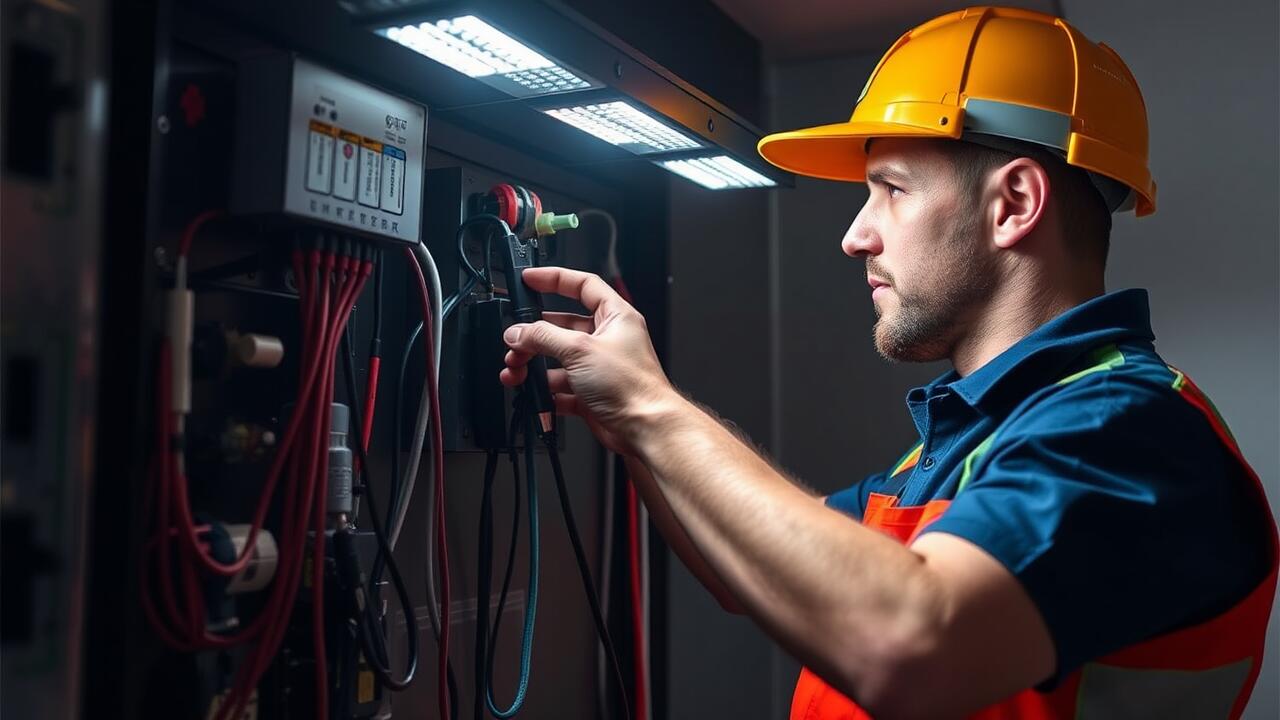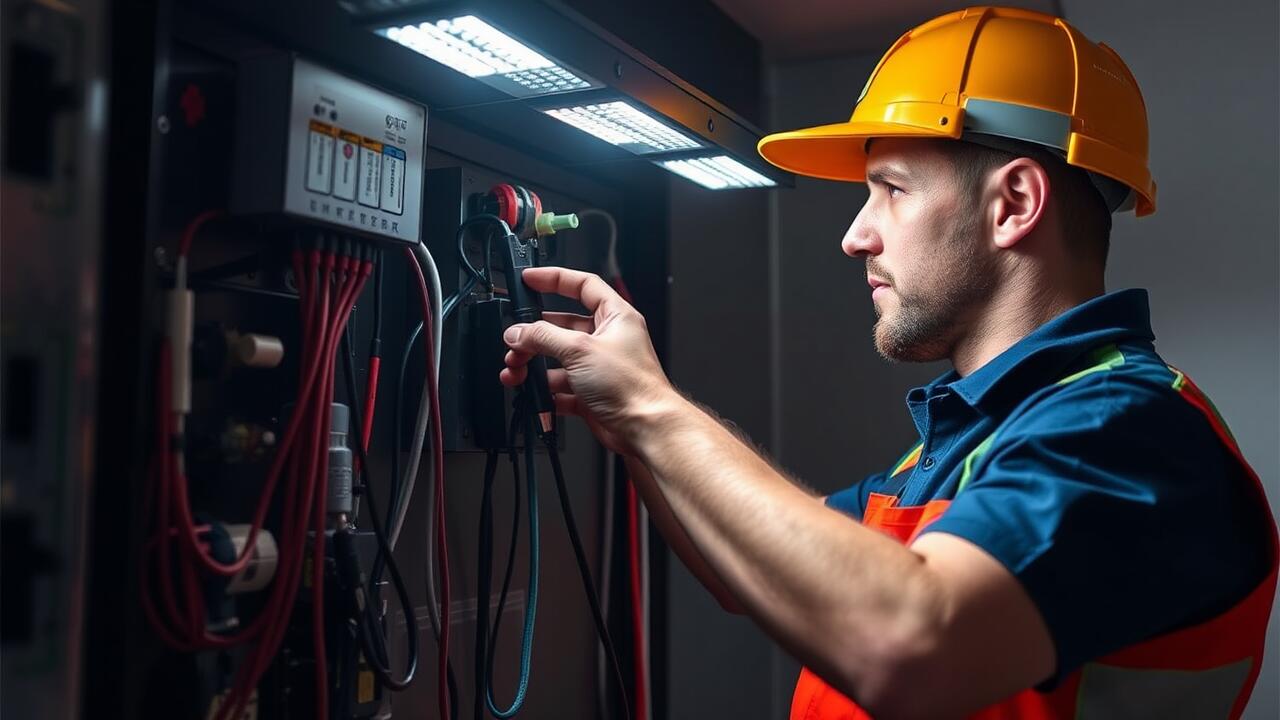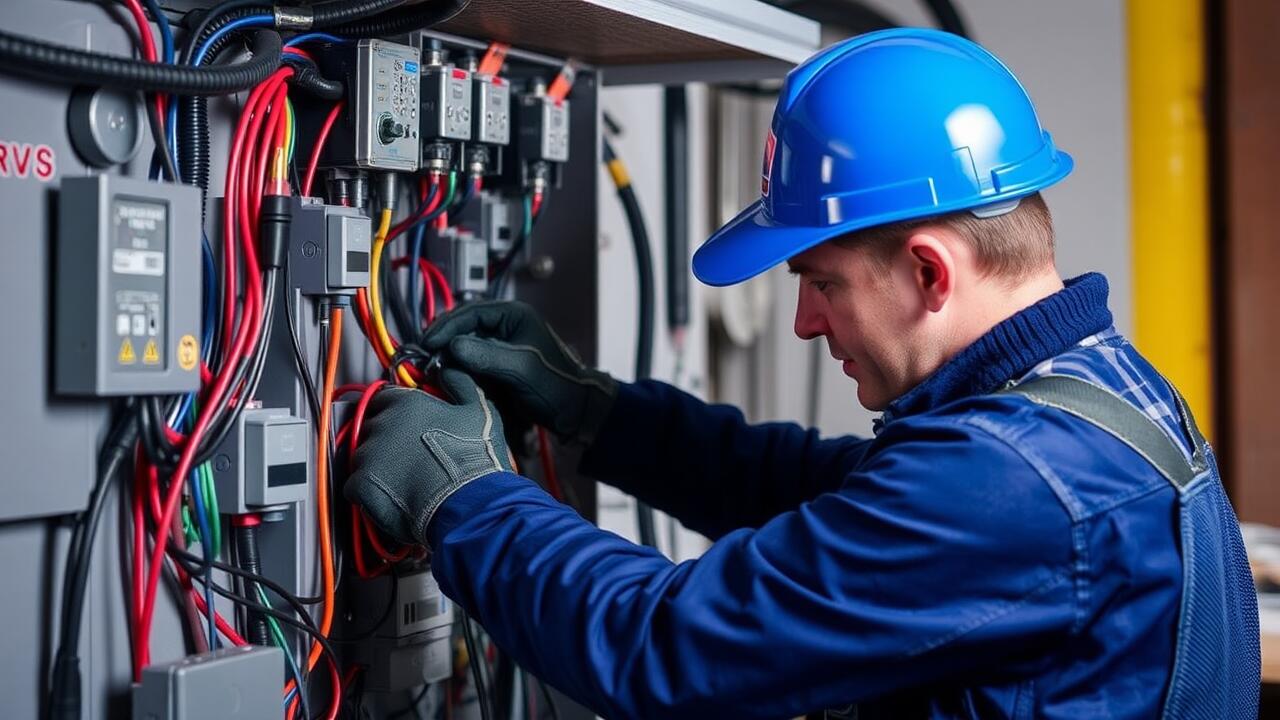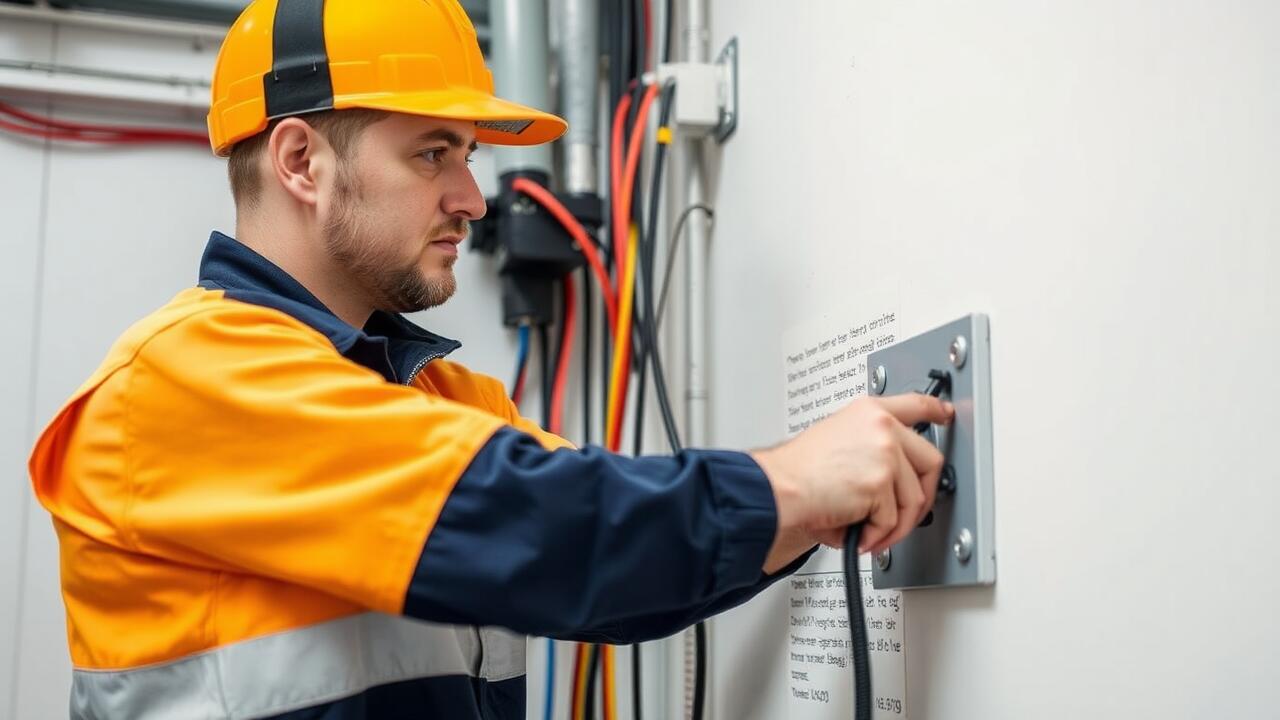
Importance of Regular Electrical Inspections
Regular electrical inspections are crucial for maintaining the safety and efficiency of any electrical system. These inspections allow homeowners to identify potential issues before they escalate into hazardous situations. A proactive approach ensures that any necessary electrical repairs in Sharpstown, Houston, can be addressed promptly, reducing the risk of fire or equipment failure. This vigilance not only protects the occupants but also extends the lifespan of the electrical components in the home.
Furthermore, routine inspections provide peace of mind, especially in areas with diverse climate conditions. Understanding how fluctuations in temperature and humidity can affect electrical systems helps homeowners prepare for seasonal challenges. By scheduling regular checks, residents can benefit from tailored advice regarding necessary upgrades or modifications, guaranteeing the reliability of their electrical setup throughout the year.
Ensuring System Reliability
Regularly scheduled electrical inspections are crucial for maintaining reliability in circuit systems. Identifying potential issues before they escalate is key to a functional electrical network. Electrical Repairs in Houston can address various problems, from wear and tear on components to outdated wiring. These proactive measures help prevent unexpected outages and mitigate safety hazards.
Advancements in technology have led to the development of more sophisticated circuit breakers, but even the most reliable systems require periodic evaluations. An expert inspection can pinpoint weaknesses that may not be immediately visible. By investing in these assessments, homeowners can ensure their electrical systems operate efficiently and safely, reducing the likelihood of frequent circuit interruptions.
Circuit Breaker Types and Their Functions
Understanding the different types of circuit breakers is crucial for homeowners navigating electrical systems. Standard circuit breakers act as the first line of defense against electrical overloads by interrupting the flow of electricity when excessive current is detected. They come in various ratings to accommodate different needs within a household, ensuring safety and preventing potential hazards. GFCI (Ground Fault Circuit Interrupter) breakers, on the other hand, monitor the current flowing through circuits. They cut off electrical supply in the event of a ground fault, providing added protection in areas where water and electricity may mix, such as kitchens and bathrooms.
In regions like Sharpstown, awareness of circuit breaker functions helps in early detection of electrical issues. Regular electrical repairs in River Oaks, Houston, can prevent frequent trips and enhance overall system reliability. Homeowners should familiarize themselves with their specific circuit configuration and consider the benefits of installing both standard and GFCI breakers where necessary. This knowledge empowers residents to maintain their homes effectively and address any electrical concerns before they escalate.
Differentiating Between Standard and GFCI Breakers
Standard circuit breakers are designed to protect electrical circuits from overloads and short circuits. They function by automatically shutting off the electrical flow when they detect a fault within the system. This interruption helps prevent damage to appliances and the electrical wiring itself. Standard breakers are commonly used in residential and commercial settings where there is a need for general circuit protection.
Ground Fault Circuit Interrupter (GFCI) breakers provide an additional layer of safety, specifically in areas where water and electricity are in proximity, such as kitchens and bathrooms. GFCI breakers monitor the flow of electricity and can detect imbalances between incoming and outgoing current. If a ground fault is detected, they quickly cut off the electrical supply. For residents mindful of safety, understanding the differences between these types of breakers is essential, particularly when scheduling Electrical Repairs in West University Place, Houston.
Seasonal Factors Affecting Circuit Functionality
Seasonal changes can significantly impact the functionality of electrical systems. Extreme temperatures, whether hot or cold, can cause materials to expand or contract, which might lead to issues with wiring and connections. These fluctuations increase the risk of circuit breakers tripping more frequently, particularly during intense weather conditions. For instance, during the summer months, the demand for air conditioning rises, putting additional strain on the electrical system, potentially leading to overloads.
Homeowners in Sharpstown should be aware that winter months also pose risks for circuit functionality. The colder temperatures can affect the performance of electrical components, leading to malfunctions that may necessitate electrical repairs. Regular inspections are essential to identify potential issues before they escalate. Maintaining awareness of these seasonal factors ensures not only the reliability of your electrical system but also the safety of your home in Sharpstown, Houston.
Impact of Temperature Changes
Temperature changes can significantly affect the performance of circuit breakers. During colder months, the material inside the breaker can become less pliable, which may lead to increased resistance and even tripping. Conversely, high temperatures can cause components to expand, potentially leading to short-circuiting or overloads. Homeowners should be aware of these shifts in temperature and how they might impact their electrical systems.
Regular maintenance is crucial to mitigate these issues. Performing electrical repairs in Kingwood, Houston can ensure that circuit breakers and other components are functioning optimally, no matter the weather conditions. By having a professional conduct inspections, homeowners can identify potential problems before they escalate, reducing the risk of frequent trips and maintaining peace of mind.
FAQS
What are the common reasons for circuit breakers to trip frequently?
Common reasons include overloaded circuits, short circuits, ground faults, faulty appliances, and aging or damaged circuit breakers.
How often should I have my electrical system inspected?
It is recommended to have your electrical system inspected at least once every three to five years, or more frequently if you notice issues like frequent tripping of circuit breakers.
What is the difference between a standard circuit breaker and a GFCI breaker?
A standard circuit breaker protects against overcurrent and short circuits, while a GFCI (Ground Fault Circuit Interrupter) breaker provides additional protection against ground faults by shutting off the circuit when a difference in electrical current is detected.
How can seasonal changes affect my circuit breakers?
Seasonal changes can impact electrical systems due to temperature fluctuations, humidity, and increased use of heating or cooling systems, which can lead to higher electrical loads and potential tripping of breakers.
What should I do if my circuit breaker keeps tripping?
If your circuit breaker keeps tripping, you should first identify and disconnect any overloaded devices or appliances. If the issue persists, it’s best to consult a licensed electrician to diagnose and resolve the problem safely.







